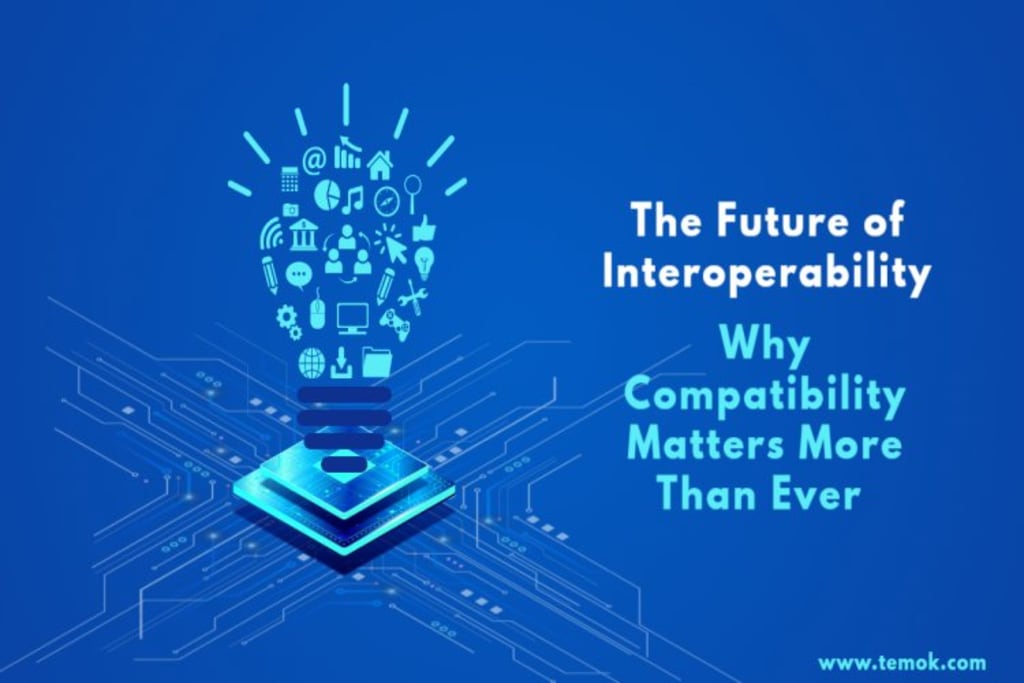Future of Interoperability and Why Compatibility Matters
Future of Interoperability

Interoperability, the ability of different systems and devices to seamlessly communicate and work together, has become increasingly crucial in our modern world. As technology continues to advance at a rapid pace, the need for compatibility between various platforms, applications, and devices has never been more apparent. From smartphones to smart homes, from healthcare systems to autonomous vehicles, the future of interoperability holds immense potential and benefits for individuals and society as a whole.
One of the key reasons why compatibility matters more than ever is the growing complexity of our technological landscape. We are surrounded by a multitude of devices and platforms, each with its own unique capabilities and functions. From smartphones and tablets to smart watches and home automation systems, we rely on these interconnected devices to simplify and enhance our lives. However, without interoperability, these devices would operate in silos, limiting their usefulness and creating a fragmented user experience.
Interoperability also plays a vital role in driving innovation and fostering competition. When different systems and devices can seamlessly integrate and communicate with each other, it creates a fertile ground for collaboration and development. Companies can build on each other's technologies, creating new and innovative products and services. This collaborative environment spurs competition, as businesses strive to offer the most compatible and user-friendly solutions. Ultimately, it is the consumers who benefit from this healthy competition, as they have access to a wider range of options and can choose the products that best suit their needs.
In sectors like healthcare, interoperability has the potential to revolutionize patient care and improve outcomes. Currently, healthcare systems often operate in isolated silos, with patient data stored in different formats and incompatible systems. This lack of interoperability leads to inefficiencies, delays, and potential errors in treatment. However, with increased interoperability, medical professionals could seamlessly access and share patient data, resulting in more coordinated and personalized care. Interoperability also opens the door for advancements in telemedicine, remote monitoring, and artificial intelligence applications, enhancing the overall quality of healthcare delivery.
Furthermore, the future of transportation heavily relies on interoperability. With the rise of autonomous vehicles and smart transportation systems, the ability for different vehicles and infrastructure to communicate with each other is crucial for safety and efficiency. Interoperability enables vehicles to exchange real-time data about road conditions, traffic patterns, and potential hazards, allowing for better navigation and decision-making. It also facilitates the integration of electric vehicles with charging infrastructure, ensuring a seamless charging experience and promoting the widespread adoption of clean energy transportation.
However, achieving widespread interoperability is not without its challenges. Different platforms and devices often use proprietary protocols and standards, creating barriers to seamless integration. Additionally, concerns around data privacy and security can hinder the sharing of information between systems. Addressing these challenges requires collaboration between stakeholders, including technology companies, standardization bodies, policymakers, and regulatory agencies. Efforts to establish common protocols, open standards, and secure data sharing frameworks are crucial to realizing the full potential of interoperability.
In conclusion, the future of interoperability holds immense promise and potential. From simplifying our daily lives to transforming industries, compatibility between systems, applications, and devices has become more important than ever. Interoperability drives innovation, fosters competition, and improves user experiences. It has the power to revolutionize sectors such as healthcare and transportation, enabling more efficient and personalized services. While challenges exist, concerted efforts are needed to establish common standards and frameworks that promote seamless integration and protect data privacy and security. As we move forward in this increasingly interconnected world, embracing and prioritizing interoperability will be essential for unlocking the full potential of technology and shaping a more efficient and harmonious future.
About the Creator
James William
If you are thinking of stepping into this digital world, then I would love to write and help you to get your business online. First of all, register a Domain Name and buy a Web Hosting plan and get started promoting on the internet.
Enjoyed the story? Support the Creator.
Subscribe for free to receive all their stories in your feed. You could also pledge your support or give them a one-off tip, letting them know you appreciate their work.






Comments
There are no comments for this story
Be the first to respond and start the conversation.